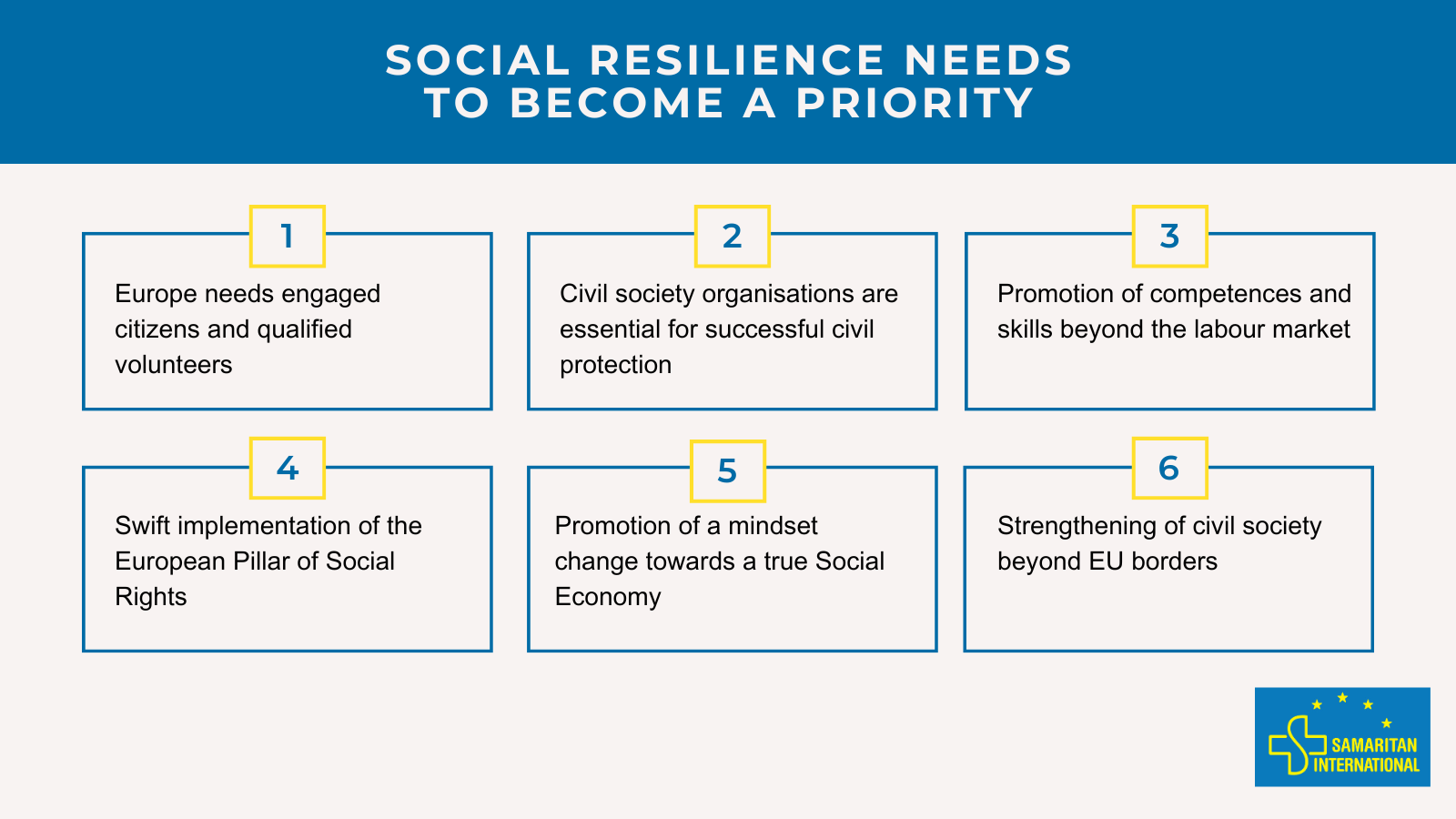Social resilience needs to become a priority
Posted on |
Ahead of the elections for the European Parliament in June 2024, Samaritan International published its election memorandum titled “Social resilience needs to become a priority” and sent a catalogue of questions to the European parties as well as the main groups in the European Parliament.
The responses will inform Samaritan International and its members about where the different parties and groups stand on topics concerning civil society, structured and qualified volunteering, social economy and social services.
The many crises Europe and its citizens are currently facing, risk to increase already persisting social inequalities and to place the heaviest burden on the most vulnerable. The European Union has to ensure a socially just and inclusive green and digital transition to avoid the erosion of social cohesion and solidarity. More so, social rights, equality, cohesion and civic engagement have to be put front and center of any policy in order to protect and promote the values that form the foundation of the European Union.
Against the backdrop of these high levels of uncertainty, Samaritan International strongly believes that we can only successfully manage these difficult times by reinforcing social cohesion and increasing social resilience. Engaged citizens are crucial, not only for the functioning of our democracies, but also for steering through the diverse crises we are facing. As both manmade and natural disasters are increasing in frequency, actively engaged citizens will be indispensable in the response to such disasters.
Samaritan International calls for a stronger prioritisation of building a socially resilient society through:
- Support of engaged citizens and and qualified volunteers;
- Embracing civil society organisations for successful civil protection;
- Emphasizing competences and qualifications beyond the labour market;
- Swiftly implementing the European Pillar of Social Rights;
- Promoting a mindset shift towards a truly social economy;
- Facilitating civil society beyond EU borders.
Samaritan International will publish the responses to the following questions to enable members to make informed choices for their vote:
- Actively engaged citizens are instrumental in responding to the many challenges Europe is facing, as for instance natural and man-made disasters or shortcomings in the social sector. What concrete actions will your political group initiate to support qualified and structured volunteering, including civil society organisations that offer and promote such opportunities?
- The set-up of the European Pillar of Social Rights and the corresponding Action Plan have been important milestones. However, we are still far off from having achieved fair and well-functioning labour markets and social systems. What steps does your political group propose to address the many challenges of the social services sector, such as under-funding and lack of qualified staff?
- In November 2023, the Council adopted its recommendation on developing social economy framework conditions. How will your political group support the shift towards a more social European economy? Civil society organisations pursuing a public benefit purpose are a cornerstone of the social economy. What is your political group’s stance on the definition of a public benefit status on European level?
- Ties between civil society organisations from EU Member States with civil society organisations from the Western Balkans and the Eastern Neighbourhood enable crucial people-to people contacts and are a tool to counter ‘accession fatigue’ or strategically used disinformation. How will your political group support the work of civil society networks engaging partners from the Western Balkans and the Eastern Neighbourhood?
Read the full memorandum here.

